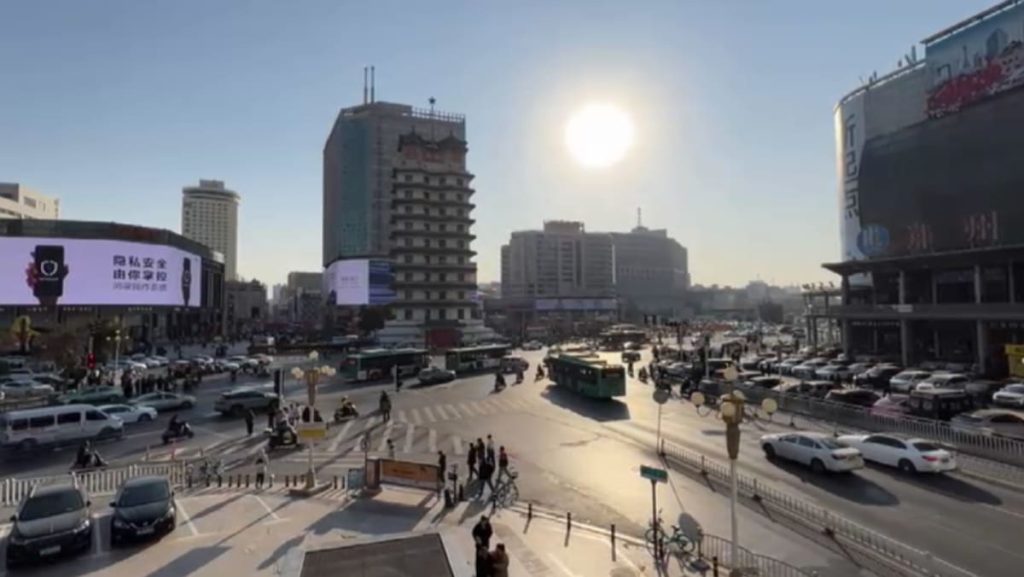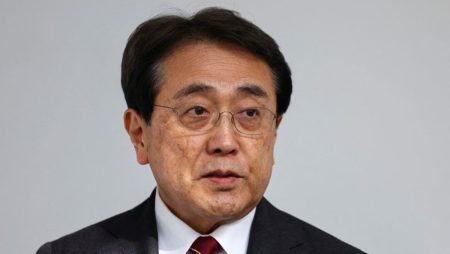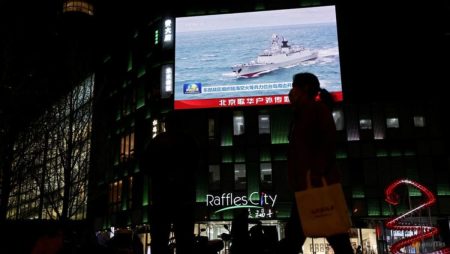Foxconn’s Zhengzhou Dilemma: Navigating Trade Wars and Economic Uncertainty
The sprawling industrial city of Zhengzhou, China, finds itself caught in the crosshairs of a global trade war, its economic fate intertwined with the fortunes of tech giant Foxconn and the unpredictable policies of former US President Donald Trump. While recent signs suggest a potential easing of tensions, the underlying challenges remain significant. Foxconn, the world’s largest electronics manufacturer and a major employer in Zhengzhou, has faced considerable uncertainty amidst escalating trade disputes. Despite rumors of a potential withdrawal, the company has recently injected optimism by hiring 50,000 new workers and pledging a substantial investment in a new business headquarters within the city. This commitment suggests a renewed confidence in Zhengzhou’s long-term viability as a manufacturing hub. However, the shadow of Trump’s trade policies continues to loom large, creating an atmosphere of apprehension and prompting businesses to seek alternative strategies for survival.
The tariffs imposed by the Trump administration pose a direct threat to Zhengzhou’s economy, which is heavily reliant on manufacturing and export-oriented industries. These tariffs increase the cost of Chinese goods in the US market, making them less competitive and potentially leading to a decline in demand. This, in turn, could trigger a cascade of negative consequences, including job losses, factory closures, and a contraction of the local economy. The livelihoods of countless workers in Zhengzhou are directly tied to these industries, making them particularly vulnerable to the fallout from trade disputes. Beyond the immediate economic impact, the tariffs also threaten to disrupt social stability within the city and surrounding communities, as families grapple with the potential loss of income and the uncertainty surrounding their future. The ripple effects extend beyond Zhengzhou, impacting the broader Chinese economy and global supply chains.
The impact of Trump’s trade policies is not limited to the technology sector. Businesses across various industries in Zhengzhou are feeling the pressure, forced to adapt their strategies to navigate the uncertain landscape. Jungle Tiger, a Zhengzhou-based company specializing in outdoor adventure equipment, exemplifies the challenges faced by smaller exporters. While initially successful in penetrating the US market despite the tariffs, the company recognizes the ongoing vulnerability and is actively pursuing diversification. By expanding into markets like the Middle East, Southeast Asia, and Russia, Jungle Tiger aims to mitigate the risk associated with overreliance on the US market. This proactive approach reflects a broader trend among Chinese businesses seeking to reduce their dependence on the US and explore alternative avenues for growth.
Despite the challenges posed by trade wars, experts point to the enduring strength of China’s industrial clusters. The intricate network of suppliers, manufacturers, and logistics providers that has developed in China, particularly in cities like Zhengzhou, provides a competitive advantage that is difficult to replicate elsewhere. Even as companies explore alternative manufacturing locations like Vietnam or India, the need to source components and materials from within China often remains. This interconnectedness within the Chinese manufacturing ecosystem highlights the complex nature of global supply chains and the limitations of simply shifting production to other countries. While diversification is a crucial strategy for mitigating risk, the deep roots of China’s industrial base continue to exert a powerful pull.
Chinese President Xi Jinping’s commitment to further opening up the Chinese economy and aligning with international trade rules offers a glimmer of hope for de-escalating trade tensions. However, the effectiveness of this approach in convincing the US of China’s commitment to fair trade practices remains to be seen. The long-term trajectory of US-China trade relations will significantly influence the economic prospects of cities like Zhengzhou. A return to a more predictable and rules-based trading environment would provide stability and allow businesses to plan for the future with greater confidence. Conversely, continued trade disputes and escalating tariffs could further destabilize the global economy and exacerbate the challenges faced by businesses and workers in export-oriented industries.
The ongoing situation in Zhengzhou underscores the interconnectedness of the global economy and the far-reaching consequences of trade wars. While Foxconn’s recent investments offer a positive sign, the underlying vulnerabilities remain. The long-term success of Zhengzhou’s economy will depend on a combination of factors, including the evolution of US-China trade relations, the ability of businesses to adapt to changing market conditions, and the continued development of China’s industrial base. The challenges are significant, but the resilience and adaptability demonstrated by companies like Jungle Tiger suggest that businesses in Zhengzhou are prepared to navigate the complexities of the global trade landscape and seek new pathways to growth. The future remains uncertain, but the city’s strategic importance within China’s manufacturing ecosystem and the ongoing efforts to diversify markets provide a foundation for long-term economic viability.










